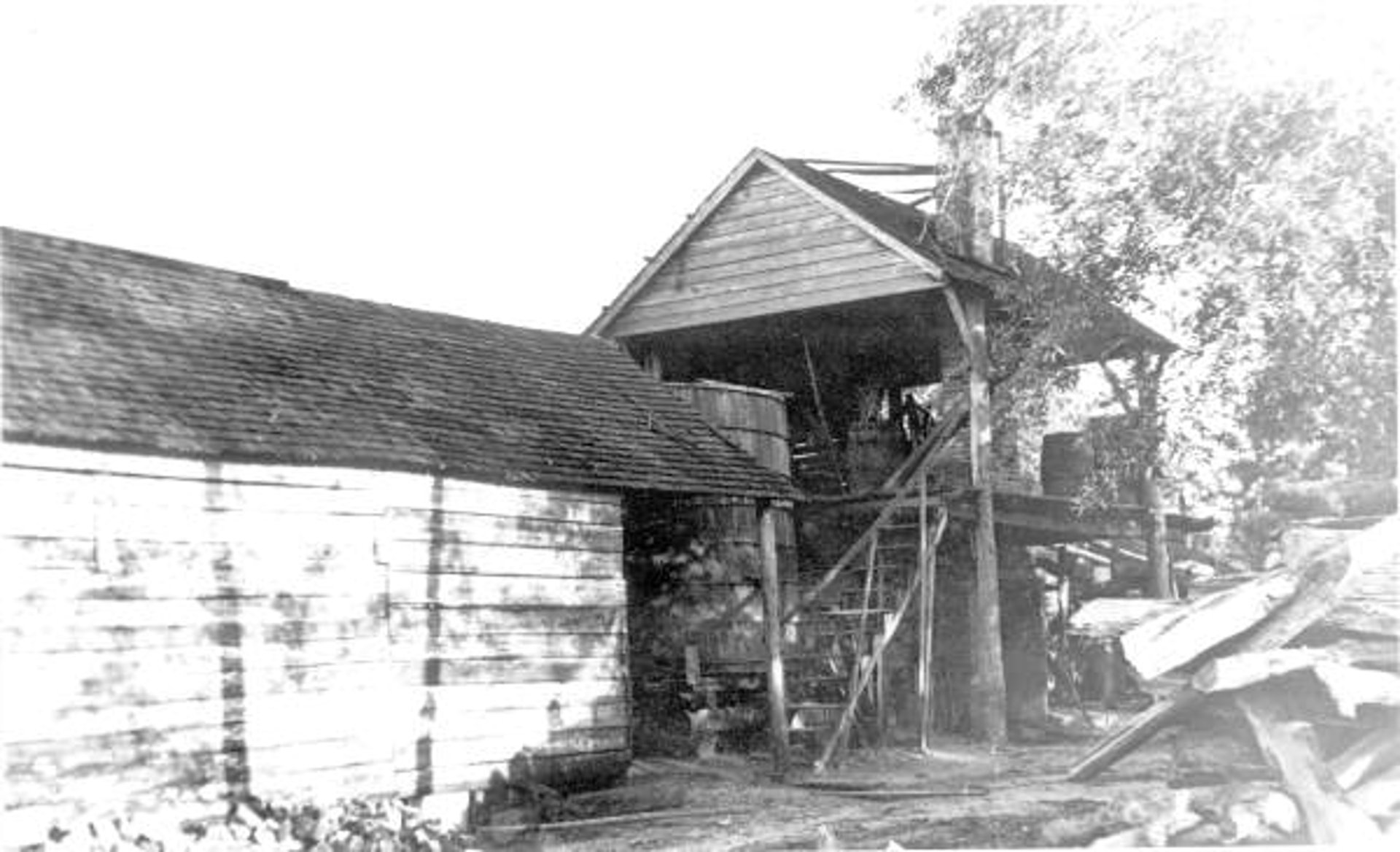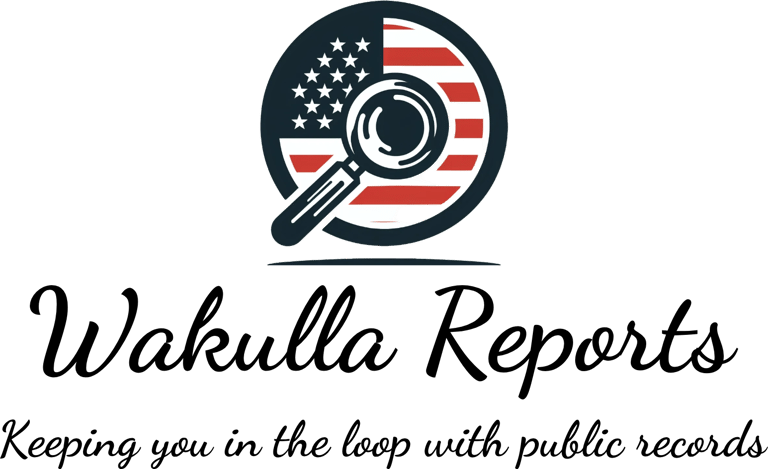🗓️ What’s Missing, What’s Moving, and Who’s Watching—Wakulla’s BOCC Agenda for October 20, 2025
From housing aid and nonprofit funding to land-use shifts and delayed infrastructure, this meeting is packed with decisions that shape Wakulla’s future. We’ve broken down the agenda, flagged the flashpoints, and surfaced the questions you deserve to ask
2025WAKULLA BOCC MEETINGS
Bella Boyd
10/19/20255 min read


Wakulla County residents, this Monday’s Board of County Commissioners (BOCC) meeting isn’t just another agenda—it’s a 500+ page full agenda. From housing and infrastructure to economic development and land use, the October 20, 2025, meeting at 5:00 p.m. will shape the roads you drive, the services you rely on, and the future you live in.
With US 319’s widening project delayed to 2026 and over budget, every vote counts. Based on the official agenda, county records, and verified reports, here’s your breakdown of Items 6–10, 12–14, 16–18, 20, and 21. We’ve decoded the fine print, flagged the flashpoints, and surfaced the questions you deserve to ask.
🎥 Attend in person, submit a speaker card, email your commission, or stream it live on Facebook. Your voice matters.
🏚️ SHIP Change Orders: Housing Aid with Oversight Concerns (Items 6, 7, 8)
The SHIP program helps low-income residents with home repairs and replacements. Wakulla’s program, managed by Government Services Group, awarded bids in May 2025. Now, three projects are back for change orders due to “unforeseen site conditions.”
🏗️ Item 6: $20,500 for tree removal, septic installation, and a new engineered foundation
🏗️ Item 7: $26,700 for similar demolition/reconstruction needs
🛠️ Item 8: $4,500 for unspecified “necessary items” on a rehab project
💰 Total: $51,700 in new costs, raising SHIP obligations to $620,900. Only $257,566.53 remains for FY 2023–25.
🔍 2014 OIG Investigation:
A SHIP-funded demolition was approved without a title search—despite a known ownership dispute. Wakulla only implemented title search policies after a whistleblower and WCTV coverage forced the issue.
🧠 Thoughts to explore:
Are title search protocols now standard practice?
Why do change orders keep cropping up?
Are site assessments thorough enough to prevent cost creep?
✅ Outcome:
Three families could receive safe housing—but without stronger oversight, ballooning costs may jeopardize future projects.
🧾 Non-Profit Funding Agreements: Supporting Services Amid Some Oversight Questions (Item 9)
Item 9 greenlights $175,000 for nonprofits providing services. Funds are disbursed quarterly, with annual audits required. Has anyone ever seen an audit?
📋 Who’s Getting What:
🦷 Capital Medical Society: $12,000 for free medical/dental care
👵 Senior Citizens Council: $100,000 for meals, transport, and programs
🌿 Keep Wakulla Beautiful: $40,000 for litter prevention and recycling
🦉 Wild Mammal Association: $8,000 for wildlife rehab
🏥 Panacea Clinic: $15,000 (via state transfer)
🧠 Questions worth pondering:
Why does one organization receive 57% of the total allocation?
Are audit processes strong enough to ensure proper use of funds?
✅ Outcome:
Supports vital services—but without transparency, public trust and program integrity are at risk.
💼 Consultant Services Agreement: Benefits Continuity or Cost Creep? (Item 10)
Item 10 renews Brown & Brown, Inc. as Wakulla’s Agent of Record for employee benefits (hello sparked employee pay increase to cover increase cost in benefits) through Nov. 1, 2026. The firm handles open enrollment, ACA/COBRA/HIPAA compliance, and claims analysis for 400+ employees under the CHP plan. No direct cost to the county—commissions are paid by carriers.
🔍 Context Check:
This renewal follows a 10% premium hike in 2024. The 2022 RFP promised cost containment, compliance support, and fiduciary responsibility to Wakulla County. But with rising costs and no public performance review, the question isn’t just “what’s being renewed”—it’s “who’s watching?”
⚠️ Potential Conflict of Interest:
Because carriers pay the consultant’s commission, there’s a risk that Brown & Brown could favor plans offering higher commissions over those that are most cost-effective for the county and its employees. This isn’t unique to Wakulla—nationwide, commission-based models in benefits consulting face criticism for this very reason. The county relies on Brown & Brown’s fiduciary duty to prioritize Wakulla’s interests, but without oversight, that duty is hard to verify.
🚫 Lack of Transparency:
The agenda doesn’t disclose the commission rate or the total cost embedded in premiums, making it difficult to know how much Brown & Brown earns. Without public reporting on performance metrics—like savings achieved or cost comparisons—it’s unclear whether the county is getting true value, especially after recent premium increases.
🧠 Thoughts to explore:
• Has Brown & Brown delivered measurable savings or improved service?
• Is there a performance review available to the public?
• What accountability exists for benefit decisions that affect hundreds of employees?
✅ Outcome:
Renewal ensures continuity—but without transparency, rising costs and potential conflicts could quietly burden staff and taxpayers alike
⚠️ Emergency Management Grants: Late Assurances (Items 12, 13, 14)
These items approve overdue federal compliance forms for FDEM grants totaling ~$510,000. The filings are years late.
💸 The Grants:
Item 12: $94,532.90 for generators at the Sheriff’s Annex & Public Works
Item 13: $221,076 for generators at the Recovery Center & BOCC Complex
Item 14: $194,338 for Lift Station #6 in Panacea
🧠 Reflection points:
What caused years-long delays in filing federal assurances?
What systems are in place to prevent future lapses?
✅ Outcome:
Approvals protect funding—but the pattern of delay is interesting; more to come?
💧 Springs Protection Grant: Budget Reset or Planning Misfire? (Item 16)
Item 16 rescinds a prior amendment and approves a revised $6 million FDEP grant for wastewater infrastructure. The revision reflects lower-than-expected bids.
🧠 Thoughts to explore:
Why was the original budget estimate so inflated?
How are bids evaluated and adjusted for accuracy?
✅ Outcome:
Cost savings are welcome—but only if they’re not masking deeper planning flaws.
🏗️ RFQ Award: Familiar Firm, Familiar Questions (Item 17)
Item 17 awards RFQ 2025-17 REBID to Baskerville-Donovan, Inc. (BDI) for design criteria services.
🔍 Ethics Flashback:
A 2020 complaint alleged that then-County Administrator David Edwards stayed at a BDI-owned beach house during contract talks. The complaint was dismissed—but the optics remain troubling.
🧠 Consider:
What’s the scope and cost of this contract?
Are conflict-of-interest safeguards clearly documented?
✅ Outcome:
The project may move forward—but without transparency, public trust could erode.
📚Library Construction: Community Investment or Delay Risk? (Item 18)
Item 18 awards $3.69 million to Estes Homes for a 12,500-sq-ft library, funded by a Florida Commerce grant. Includes a CareerSource center. Timeline: 300 days.
🧠 Questions worth pondering:
Can the county avoid delays seen in past projects?
What accountability measures exist for the 300-day timeline?
✅ Outcome:
Boosts community resources—but delays could inflate costs and erode momentum.
🛡️Project Safety Agreement: Economic Opportunity with Risks (Item 20)
Item 20 approves a funding agreement with Point Blank Enterprises for a 118,000-sq-ft facility in Opportunity Park, creating 300+ jobs ($52,900 avg. salary). Grants cover $21.5M of the $25.2M cost; county fronts design costs (reimbursable). Point Blank is liable if no construction by June 2026.
🧠 Reflection points:
Are clawback protections strong enough to safeguard public funds?
How will the county address the $3.7 million shortfall?
✅ Outcome:
Jobs could boost the economy—but debt risks need monitoring.
🛣️ Large-Scale Comprehensive Plan Map Amendment (CPM25-02) and Growth Tensions (Item 21)
Item 21 seeks final hearing and adoption of a Large-Scale Comprehensive Plan Map Amendment (CPM25-02) for Golden Construction Company, Inc., represented by Edwin Brown & Associates/Wade Brown. This quasi-judicial process (County Code §24.01, Resolution 04-43) proposes changing the Future Land Use Map (FLUM) for 50+ acres from rural/low-density residential (0.1–1 dwelling unit/acre) to medium-density residential/commercial (1–5 dwelling units/acre), enabling mixed-use development.
📍 Location & Scope:
The application targets a 48.37± acre parcel at 562 Dr. Martin Luther King Jr Memorial Road, abutting the eastern boundary of Mallard Pond Subdivision and the southern boundary of Eastgate Subdivision. The proposed land use change would shift the designation from Agriculture to Suburban Transitioning, paving the way for a single-family townhome development if approved.
🔍 Deeper Context:
Wakulla has had no impact fees since 2011, straining infrastructure funding. US 319 handles 12,900 vehicles/day (FDOT 2025), and its widening is delayed to 2026. Meanwhile, nitrate levels threaten local springs (FDEP data). Without clear traffic and environmental mitigation plans, growth could outpace capacity.
🧠 Thoughts to explore:
What traffic and environmental studies support this amendment?
How will infrastructure be funded without impact fees?
Does this shift reflect community priorities—or developer momentum?
✅ Outcome:
Approval could drive tax revenue and housing options—but risks straining roads, utilities, and natural resources.
Stay sharp, Wakulla!

Additional Social Links
YouTube is your go-to for short clips, video explainers, and visual breakdowns of how Florida and Wakulla governments really work.
Facebook brings you bite-sized written content, sticky-note facts, and rolling updates you can share and discuss.
Prefer to browse at your own pace?
Bookmark our website and visit anytime for fresh posts, resources, and real-life examples from right here in Wakulla County.
© 2024. All rights reserved.
